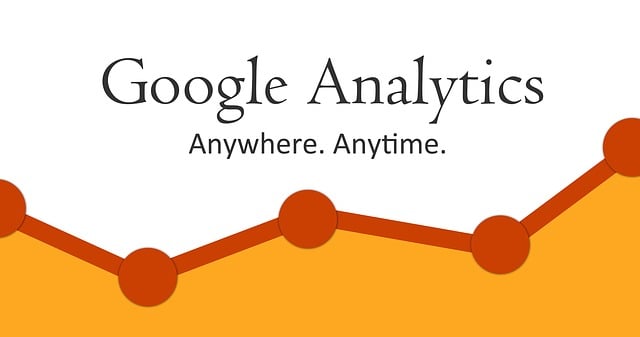Universities should adopt professional SEO programs to enhance their online visibility and attract global audiences, including prospective students, researchers, and partners. By conducting regular SEO audits using tools like Google Search Console and SEMrush, universities can optimize website structure, content, and metadata, as well as identify keyword opportunities. These programs enable data-driven decision-making for improved search rankings, fostering academic communities and reinforcing institutions' reputations in the competitive educational landscape. Measuring success through KPIs and advanced analytics ensures continuous improvement, positioning universities as authoritative sources of industry insights and research discoveries.
Universities need effective digital marketing strategies, and SEO audits are a powerful tool to enhance online visibility. This comprehensive guide, SEO Audit University, explores the significance of these audits for academic institutions, offering a step-by-step approach to success. From understanding core components to integrating SEO into marketing plans and measuring ROI, we equip you with the knowledge. We also highlight the importance of professional SEO training to empower university staff and students, fostering robust online presence through professional SEO programs.
Understanding the Importance of SEO Audits for Universities

Universities, as institutions dedicated to knowledge and academic excellence, must adapt to the digital landscape to reach a wider audience and enhance their online visibility. In this era dominated by search engines, understanding the intricacies of SEO (Search Engine Optimization) has become imperative for universities aiming to attract prospective students, researchers, and partners globally. A comprehensive SEO audit serves as a crucial tool to assess and optimize an institution’s online presence, ensuring its digital assets are effectively targeted by search algorithms.
By conducting regular SEO audits, university administrators can identify areas of improvement in website structure, content quality, and metadata optimization. These professional SEO programs help uncover technical issues, such as broken links or slow loading times, that may hinder a university’s search engine rankings. Moreover, it allows for a strategic analysis of keyword usage, competitor strategies, and industry trends, enabling universities to craft effective digital marketing campaigns that resonate with their target audiences.
Key Components of a Comprehensive SEO Audit

A comprehensive SEO audit is a critical step for any university looking to enhance its online visibility and attract a wider student base. It involves an in-depth analysis of various factors that impact search engine rankings, ensuring all aspects of a website are optimized effectively. The key components include technical SEO, keyword research, content analysis, backlink profiling, and local SEO (if applicable).
Technical SEO ensures the website is crawlable and indexable by search engines, with a focus on site structure, mobile-friendliness, page speed, and schema markup. Keyword research identifies relevant terms students and parents use when searching for universities, guiding content creation and strategic placement. Content analysis evaluates the quality and relevance of existing content, suggesting improvements to align with user intent. Backlink profiling examines incoming links from other websites, assessing their quality and potential to boost the university’s authority. Local SEO optimizes visibility for nearby searches, crucial for physical campuses. Professional SEO programs often provide tools and insights to tackle these components systematically, enabling universities to make data-driven decisions for better search rankings.
Best Practices for Conducting an Effective SEO Audit

When conducting an effective SEO audit, it’s crucial to follow best practices that ensure a comprehensive and insightful analysis. Start by gathering relevant data using professional SEO programs like Google Search Console and SEMrush. These tools provide valuable insights into keyword rankings, organic traffic, backlink profiles, and more.
Next, assess the technical health of your website. Check for crawl errors, mobile-friendliness, site speed, and schema markup implementation. Also, evaluate on-page SEO elements such as meta tags, header tags, content quality, and keyword optimization. Regularly comparing these metrics over time helps identify areas for improvement.
Integrating SEO Strategies into University Marketing Plans

Universities, as educational institutions, play a vital role in shaping the future through knowledge dissemination and research. To thrive in today’s competitive landscape, they must embrace effective marketing strategies, and one such powerful tool is Search Engine Optimization (SEO). Integrating SEO into university marketing plans is not just about improving online visibility but also about reaching the right audience—potential students, faculty, and researchers. By leveraging professional SEO programs, universities can optimize their digital presence, ensuring their websites are search engine-friendly and aligned with student preferences.
This approach involves a comprehensive understanding of keyword research, content optimization, and technical SEO practices. Universities can create valuable resources that attract and engage their target demographics, ultimately driving enrollment and fostering academic communities. With the right SEO strategies in place, universities can ensure their online platforms become go-to sources for industry insights, research discoveries, and educational opportunities, solidifying their reputation in the academic world.
Measuring Success and Tracking ROI in SEO Programs

Measuring success and tracking the return on investment (ROI) in professional SEO programs is paramount for evaluating their effectiveness. Key performance indicators (KPIs) such as organic traffic growth, keyword rankings, click-through rates (CTRs), and conversion rates serve as vital metrics to gauge progress. By regularly monitoring these KPIs, marketers can identify high-performing strategies and areas that need optimization.
Advanced analytics tools play a crucial role in this process by providing detailed insights into user behavior on websites. These tools enable professionals to track not only the quantity of traffic but also the quality of interactions, helping them make data-driven decisions. Ultimately, effective tracking ensures that SEO efforts are aligned with business goals and enables continuous improvement in professional SEO programs.
Professional SEO Training: Empowering University Staff and Students

University staff and students now have access to powerful tools and insights thanks to the emergence of professional SEO training programs. These programs are designed to empower individuals with the knowledge and skills needed to optimize online content effectively, thereby enhancing the university’s digital visibility and reach. Through comprehensive courses that cover everything from keyword research to link building, participants gain a deep understanding of search engine algorithms and user behavior, enabling them to create engaging, SEO-friendly content that drives traffic and engagement.
With the ever-evolving nature of search engine optimization, staying ahead of the curve is essential for institutions looking to maintain their online presence. Professional SEO training programs offer a practical, hands-on approach to learning, equipping participants with actionable strategies they can implement immediately. By investing in these programs, universities not only strengthen their digital marketing capabilities but also foster a culture of innovation and excellence among their faculty and students, ensuring they remain competitive in the dynamic landscape of online education.
